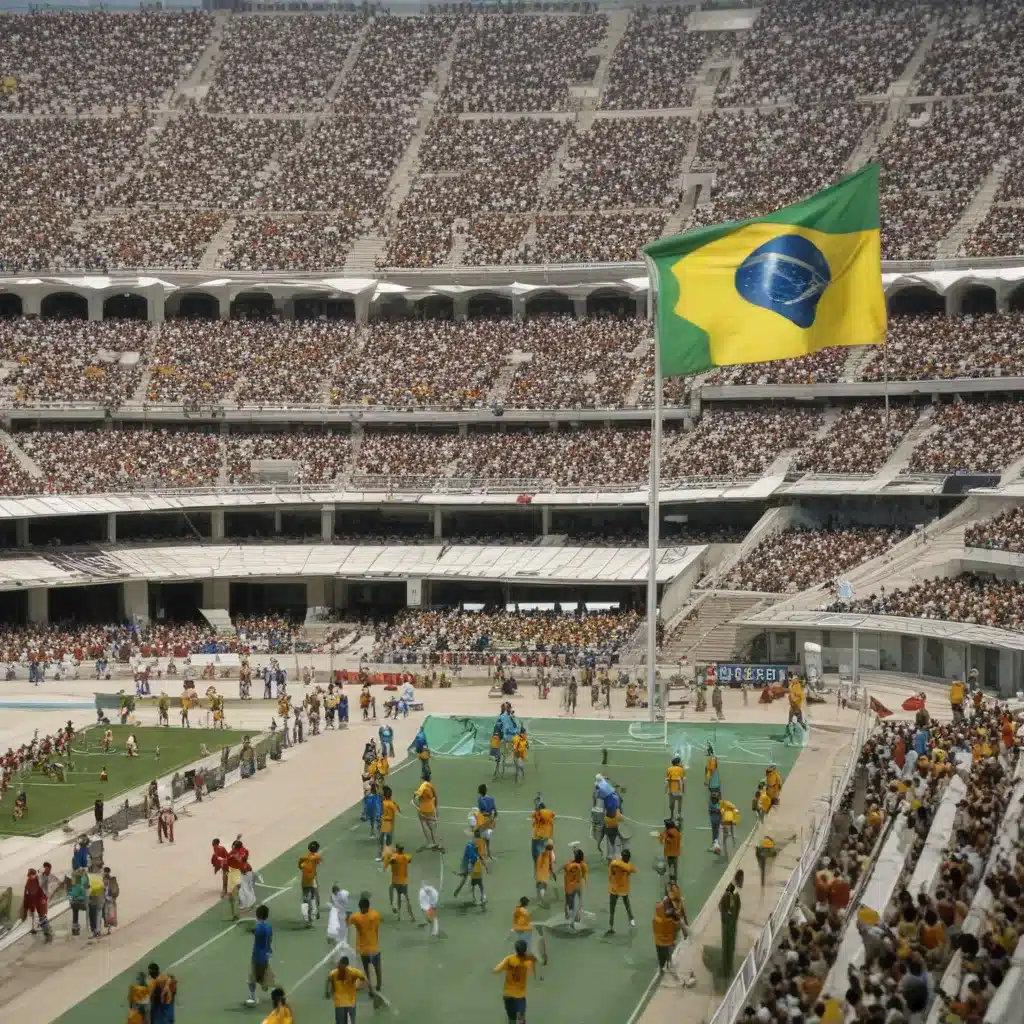
The Olympics – Athens 2004 | Wilbur’s Travels and its Insights for Brazilian Football
Brazilian Football Landscape
Brazil is a footballing powerhouse, with a rich history and passionate fan base. The domestic league, known as the Brasileirão, is one of the most competitive in the world, featuring iconic clubs like Flamengo, Corinthians, São Paulo, and Internacional. These teams enjoy fierce rivalries, with matches often drawing tens of thousands of devoted supporters to stadiums across the country.
The Brazilian national team, meanwhile, has won a record five World Cup titles, with legendary players like Pelé, Ronaldo, and Neymar donning the iconic yellow and green jersey. The Seleção’s success on the international stage has cemented Brazil’s reputation as a footballing powerhouse, inspiring generations of young players to pursue their dreams of representing their country.
Beyond the men’s game, Brazilian women’s football has also made significant strides in recent years, with the national team emerging as a force to be reckoned with on the global stage. The growth of the Campeonato Brasileiro de Futebol Feminino, the top-flight women’s league, has helped to nurture and showcase the immense talent within the country.
The 2004 Athens Olympics
The 2004 Summer Olympics in Athens, Greece, were a landmark event for world football. The men’s and women’s football tournaments provided a stage for some of the game’s brightest stars to showcase their skills on the international stage.
In the men’s competition, the spotlight shone on the Brazilian team, led by the legendary Ronaldinho. The Seleção navigated their way through a tough group stage and knockout rounds, eventually reaching the final against Argentina. In a tightly contested match, Brazil emerged victorious, with Adriano and Lionel Messi each scoring a brace in a thrilling 2-2 draw that was settled by a penalty shootout. This triumph marked Brazil’s third Olympic gold medal in men’s football, cementing their status as a dominant force in the game.
The women’s tournament, meanwhile, saw the United States and Germany renew their long-standing rivalry. The Americans, led by the iconic Mia Hamm, Kristine Lilly, and Abby Wambach, faced off against the Germans in a dramatic final that went to extra time. In the end, it was Abby Wambach’s heroic strike that sealed the gold medal for the United States, solidifying their position as the world’s pre-eminent women’s football team.
Lessons for Brazilian Football
The 2004 Athens Olympics provided valuable insights for the development of Brazilian football, both on and off the pitch.
Talent Development Strategies:
The success of the Brazilian men’s team in Athens highlighted the nation’s prowess in nurturing and developing top-tier talent. The Seleção’s ability to blend technical excellence, tactical acumen, and physical dominance showcased the effectiveness of the country’s youth development systems. Clubs like Fluminense, Flamengo, and São Paulo have long been renowned for their prolific academies, producing world-class players who have gone on to grace the world stage.
Sports Science and Sports Medicine:
The physical demands of the Olympic tournament also underscored the importance of sports science and sports medicine in the modern game. The Brazilian team’s meticulous approach to player conditioning, injury prevention, and recovery strategies played a crucial role in their triumph. This emphasis on sports science has since permeated the domestic league, with clubs investing heavily in state-of-the-art facilities and employing cutting-edge techniques to optimise player performance and longevity.
Infrastructure and Facilities:
The 2004 Olympics also highlighted the need for world-class infrastructure and facilities to support the growth of the game. The stadiums and training grounds used during the tournament showcased the importance of well-designed, purpose-built venues that can accommodate the ever-evolving demands of the sport. In the years following the Athens Games, Brazilian clubs have made significant strides in upgrading their facilities, ensuring that players have access to the best possible training and match-day environments.
Influence on Brazilian Football Culture
The 2004 Athens Olympics left an indelible mark on Brazilian football culture, both at the grassroots and professional levels.
Media and Fan Engagement:
The widespread media coverage of the Olympic football tournaments, coupled with the passionate support of Brazilian fans, helped to further elevate the status of the game within the country. Fans closely followed the exploits of their national team, creating a sense of unity and shared pride that has carried over to the domestic league. Clubs have since prioritised fan engagement, leveraging digital platforms and innovative marketing strategies to foster deeper connections with their supporters.
Grassroots Participation:
The success of the Brazilian men’s and women’s teams at the 2004 Olympics also inspired a new generation of young players to take up the sport. The visibility and excitement generated by the national team’s triumph encouraged more children, especially girls, to pursue their footballing dreams, leading to a surge in grassroots participation across the country. This influx of talent has helped to strengthen the domestic league and national team, ensuring a steady pipeline of world-class players for years to come.
International Reputation:
Brazil’s dominant performances at the 2004 Olympics cemented the country’s reputation as a global footballing powerhouse. The Seleção’s technical brilliance, tactical versatility, and competitive spirit earned the admiration of fans and experts worldwide, further solidifying Brazil’s status as a footballing mecca. This international recognition has opened up new opportunities for Brazilian players and clubs, facilitating lucrative transfer deals and expanding the reach of the domestic league on the global stage.
The legacy of the 2004 Athens Olympics continues to shape the trajectory of Brazilian football, inspiring new generations of players, coaches, and fans to strive for excellence on and off the pitch. As the country prepares to host the 2024 Summer Games, the lessons learned from Wilbur’s Travels in Athens will undoubtedly continue to guide the development and evolution of the beautiful game in Brazil.

